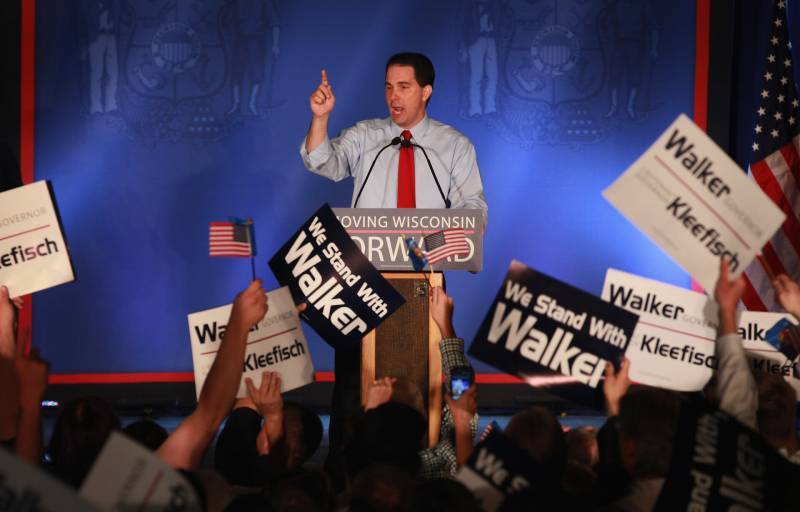A rising star in his party overcomes intense opposition from across the political aisle to survive a nationally watched recall election and bolster his resume.
It’s a story arc California Gov. Gavin Newsom would welcome as he faces a recall election in the fall — and it’s what happened in Wisconsin nearly a decade ago, when Republican Gov. Scott Walker defeated a recall attempt in the Badger State.
Republican consultant Liz Mair was an adviser to Walker during the 2012 campaign, and recently analyzed Newsom’s prospects of keeping his job.
“I do think that he will survive recall,” Mair told KQED’s Political Breakdown. “I just think that he is going to survive it by a much narrower margin than what he wants and what a lot of people are predicting.”
LISTEN TO FULL INTERVIEW HERE:
Fear the Parents
A key similarity between the two recall campaigns, Mair said, is the groundswell of frustration among parents of school kids.
“In both instances you had this undercurrent of fairly deep parental anger at certain sorts of institutions and organizations impacting state government,” she said.
In Wisconsin, Walker pushed through cuts to bargaining rights and benefits for public workers within weeks of taking office in 2011 as a way to reduce the state’s budget deficit.

